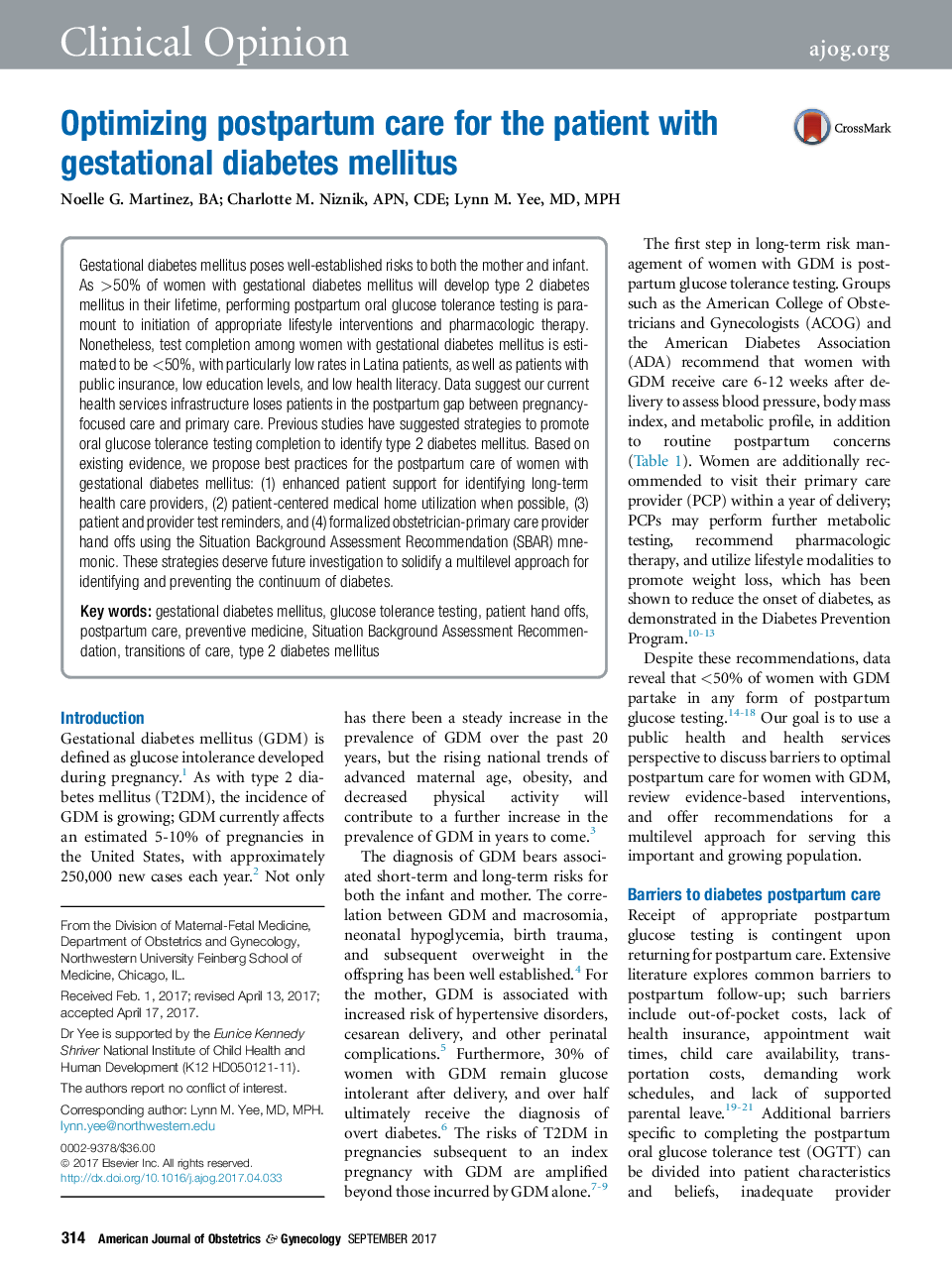ترجمه فارسی عنوان مقاله
بهینه سازی مراقبت بعد از زایمان برای بیمار مبتلا به دیابت بارداری
عنوان انگلیسی
Optimizing postpartum care for the patient with gestational diabetes mellitus
| کد مقاله | سال انتشار | تعداد صفحات مقاله انگلیسی |
|---|---|---|
| 112454 | 2017 | 8 صفحه PDF |
منبع

Publisher : Elsevier - Science Direct (الزویر - ساینس دایرکت)
Journal : American Journal of Obstetrics and Gynecology, Volume 217, Issue 3, September 2017, Pages 314-321
ترجمه کلمات کلیدی
دیابت بارداری، آزمایش تحمل گلوکز، دستمزد بیمار، مراقبت پس از زایمان، داروهای پیشگیرانه، توصیه پیشین ارزیابی وضعیت، انتقال مراقبت، دیابت نوع 2،
کلمات کلیدی انگلیسی
gestational diabetes mellitus; glucose tolerance testing; patient hand offs; postpartum care; preventive medicine; Situation Background Assessment Recommendation; transitions of care; type 2 diabetes mellitus;

